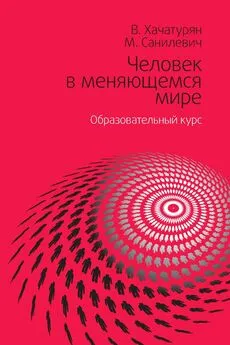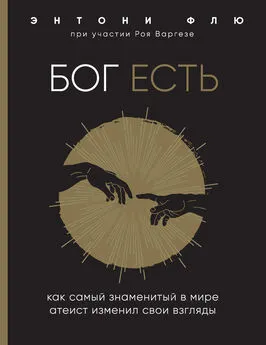Биньямин Файн - Нищета неверия. О мире, открытом Богу и человеку, и о мнимом мире, который развивается сам по себе
- Название:Нищета неверия. О мире, открытом Богу и человеку, и о мнимом мире, который развивается сам по себе
- Автор:
- Жанр:
- Издательство:Мосты культуры / Гешарим
- Год:2011
- Город:Иерусалим
- ISBN:978-5-93273-33
- Рейтинг:
- Избранное:Добавить в избранное
-
Отзывы:
-
Ваша оценка:
Биньямин Файн - Нищета неверия. О мире, открытом Богу и человеку, и о мнимом мире, который развивается сам по себе краткое содержание
Профессор Тель-Авивского университета Биньямин Файн – ученый-физик, автор многих монографий и статей. В последнее время он посвятил себя исследованиям в области, наиболее существенной для нашего понимания мира, – в области взаимоотношений Торы и науки. В этой книге автор исследует атеистическое, материалистическое, светское мировоззрение в сопоставлении его с теоцентризмом. Глубоко анализируя основы и аксиомы светского мировоззрения, автор доказывает его ограниченность, поскольку оно видит в многообразии форм живых существ, в человеческом обществе, в экономике, в искусстве, в эмоциональной жизни результат влияния лишь одного фактора: материи и ее движения. Неверие, секулярный взгляд на мир, основанный на обожествлении природы и ее законов в качестве первоисточника всего, – это и есть современное идолопоклонство, борьбу с которым автор ставит своей основной задачей.
Перевод: К. Александер
Нищета неверия. О мире, открытом Богу и человеку, и о мнимом мире, который развивается сам по себе - читать онлайн бесплатно ознакомительный отрывок
Интервал:
Закладка:
14
Optics , Query, p. 28.
15
The omnipresent God is acknowledged and by the Jews is called Place (Westfall R.S.: Never at Rest , p. 511).
16
Ideas and Opinions , p. 40.
17
The Open Society and Its Enemies, volume II, Hegel and Marx, p. 228. Выделение здесь и во всех других приведенных в книге цитатах – мое. – .Ф.Б
18
Burtt E.A. The Metaphysical Foundations of Modern Science ; Whitehead A.N. Science and the Modern World.
19
…The structural homogeneity of the world seems to resist any ‘deeper’ explanation: it remains a mystery (K. Popper, Realism and the Aim of Science , p. 152).
20
…that our intellect does not read the laws in nature’s open book, but imposes its own laws upon nature (Ibid, p. 152).
21
The Self and its Brain, p. 546.
22
Physics, Philosophy and Scientific Progress. Journal of the International College of Surgeons, 1950, XIV, p. 755–758.
23
Так это объясняет Даниэль Шалит в своей книге «Земля и небо». Он указывает на разрывы непрерывности, резкие переходы от неодушевленного мира к растительному, к животному и к человеку: от физико-химических механизмов к живому организму, а оттуда – к сознанию и свободному « я» человека.
24
Ясно, что наше знание состояния тела и воздействующих на него сил совершенно не является необходимым. Важно то, что они существуют.
25
В моей книге « Закон и Б-жественное Провидение» (« Хок ве-ѓашгаха ») я показал, что это возможно с точки зрения физики.
26
Здесь и далее, когда говорится о науке, речь идет о точных, или естественных, науках, а не о том, что называется гуманитарными научными дисциплинами.
27
I have learned something else from the theory of gravitation: No ever so inclusive collection of empirical facts can ever lead to the setting of such complicated equations. A theory can be tested by experience, but there is no way from experience to the setting up of a theory ( Albert Einstein: Philosopher-Scientist , p. 89).
28
He arrives at the disastrous conclusion that from experience and observation nothing is to be learnt. There is no such thing as a rational belief… The lunatic who believes that he is poached egg is to be condemned solely on the ground that he is in a minority… This is a desperate point of view, and it must be hoped that there is some way of escaping from it (Bertrand Russell, A History of Western Philosophy , p. 672–673).
29
The understanding does not derive its laws (a priori) from, but prescribes them, to nature (Kant, Prolegomena , p. 67).
30
Letters to Solovine: 30.III.52.
31
If, therefore, we have definitely assured knowledge, it must be grounded in reason itself. This is held to be case, for example, in the propositions of geometry and in the principle of causality. These and certain other types of knowledge are, so to speak, a part of implements of thinking and therefore do not previously have to be gained from sense data (i.e., they are a priori knowledge). Today everyone knows, of course, that the mentioned concepts contain nothing of certainty, of the inherent certainty, which Kant had attributed to them ( Ideas and Opinions , p. 22).
32
Йосеф Агасси. Происхождение современной философии. С. 278 (на иврите).
33
…Even on the assumption (which I share) that our quest for knowledge has been successful so far, and that we now know something of our universe, this success becomes miraculously improbable, and therefore inexplicable; for an appeal to an endless series of improbable accidents is not an explanation ( Objective Knowledge , K.R. Popper p. 28).
34
Successful explanation must retain… the probability zero, assuming that we measure this probability, approximately, by the ratio of the ‘successful’ explanatory hypotheses to all hypotheses which might be designed by man ( Conjectures and Refutations , K.R. Popper, p. 96).
35
The phenomenon of human knowledge is no doubt the greatest miracle in our universe ( Objective Knowledge, VII ).
36
The eternal mystery of the world is its comprehensibility… The fact that it is comprehensible is a miracle ( Ideas and Opinions , p. 292).
37
«Путеводитель растерянных», введение, с. 12 (на иврите).
38
The Psychology of Invention in the Mathematical Field, p. 15.
39
Там же, с. 19.
40
The Emperor’s New Mind , p. 541.
41
Ideas and Opinions, p. 40.
42
A.J. Heschel, Betwee n God and Man , p. 233.
43
I would even suggest that the greatest riddle of cosmology may well be neither the original big bang, nor the problem why there is something rather than nothing… but that the universe is, in a sense, creative: that it created life, and from it mind – our consciousness – which illuminates the universe, and which is creative in its turn…Einstein said something like this: “If there were not this internal illumination, the universe would merely be a rubbish heap” ( The Self and Its Brain, by Karl R. Popper and John C. Eccles, p. 61).
44
Моше Шварц обсуждает в своей книге «От мифа к Откровению» (на иврите) отношение Шеллинга к иудаизму.
45
При его составлении я пользовался книгой Элиэзера Швейда «История еврейской религиозной философии Нового времени».
46
The most central concepts of medieval Jewish philosophy are rooted in ancient Greek and medieval Arabic thought and are not of Jewish origin at all. It is impossible to reconstruct a unique Jewish world perspective out of alien material (R. J.B. Soloveitchik, The Halakhic Mind , p. 100).
47
Since the time of the great medieval philosophers, Jewish philosophical thought has expressed itself… upon premises, which were more non-Jewish than Jewish. The most characteristic example is to be found in Hermann Cohen’s philosophy of religion … There are many truths in his interpretation, but the main trends are idealistic Kantian and not Jewish ( The Halakhic Mind , p. 101).
48
И все же можно задать вопрос: как может быть, что теория относительности, даже если ей и нельзя пользоваться в непосредственной близости от сотворения мира, все же включает в себя сам момент сотворения? Разве это не противоречит тому, что сказано выше? Чтобы ответить на этот вопрос, я напомню слова Пенроуза (Roger Penrose), великого ученого, специалиста по сингулярностям общей теории относительности: «В областях сингулярностей (singularities) пространства-времени наше понимание физики достигает своих границ» (The Emperor’s New Mind, p. 446).
49
Понятий, которыми мы располагаем, недостаточно для того, чтобы описать сотворение мира. Если мы скажем: «Вначале законов природы не было, а затем они были сотворены», – мы непременно вводим в свое суждение временное измерение, а ведь времени тоже не существовало до сотворения мира, оно было сотворено вместе с ним!
50
A historical explanation does not rest on direct deduction from laws of nature, but on an unpredictable sequence of antecedent states, where any major change in any sequence would have altered the final result. This final result is therefore dependent, or contingent, upon everything that came before – the unerasable and determining signature of history ( Wonderful Life , p. 283).
51
The thesis I shall present in this book is that the biosphere does not contain a predictable class of objects or of events but constitutes a particular occurrence, compatible indeed with first principles, but not deducible from those principles and therefore essentially unpredictable (p. 43).
52
I believe that we can assert today that a universal theory, however completely successful in other domains, could never encompass the biosphere, its structure, and its evolution as phenomena deducible from first principles (p. 42).
53
There exists no law of evolution, only the historical fact that plants and animals change, or more precisely, that they have changed. The idea of a law which determines the direction and the character of evolution is a typical nineteenth-century mistake, arising out of the general tendency to ascribe to the ‘Natural Law’ the functions traditionally ascribed to God ( Conjectures and Refutations , p. 340; выделено мной. – Б.Ф. ).
54
Понимание того, что дарвинистское объяснение эволюционного процесса не является научной теорией, очень важно, как в контексте настоящего анализа, так и как существенный элемент мировоззренческого багажа каждого мыслящего человека. В случае если проведенный здесь анализ может представиться недостаточно ясным или убедительным, я предлагаю обратиться к моей прежней книге Хок вэЃашгаха(на иврите) или Low and Providence (английский перевод). Стоит добавить, что Карл Поппер, который установил признанные критерии научности различных возможных предположений или объяснений, провел подробный анализ дарвинистического объяснения эволюции; Поппер пришел к однозначному заключению: Дарвинизм не является научной теорией, он скорее имеет характер метафизической веры ( Unended Quest , p. 172).
55
Man is the result of a purposeless and materialistic process that did not have him in mind. He was not planned. He is state of matter, a form of life, a sort of animal, and a species of the order primates, akin nearly or remotely to all of life and indeed to all that is material (The Meaning of Evolution by G.G. Simpson).
Читать дальшеИнтервал:
Закладка:









